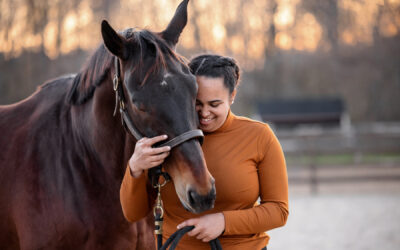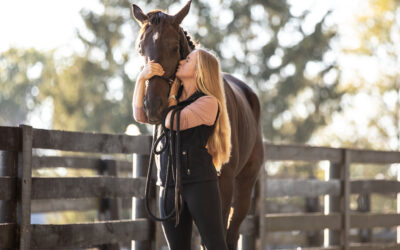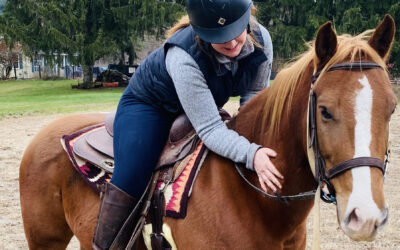Blog
Reframing the Conversation
Members of the horse industry or equestrian community use an almost infinite number of terms to describe everything from breeds, disciplines, movements, training tactics, horse characteristics, and so on. Some equestrians take pride in the vast depth and breadth of vocabulary that can take a lifetime to learn. On one hand, it enables us to partake in many different sports and disciplines with these versatile animals; on the other hand, terminology sometimes confuses or divides the horse community – from each other, and from the “non-horsey” population. Particularly in the equine welfare space, a common language is critical to creating open communication and progress.
We believe language has a huge impact on adoption and horses in transition. Rescue horses carry a stigma as flawed, broken or undesirable. The word “rescue” has a negative connotation and the public feels that a “rescue” horse is unsound, un-trained and not useful. For years, there has been a public misperception that horses wind up in the rescue system because they are somehow damaged. In reality, most horses find themselves in transition by no fault of their own – simply because their owners have experienced life changes or fallen on hard financial times. Adoptable horses are good horses; horses that can learn new skills and transition to new families or careers. But as it stands, when horse people hear “rescue horse” they often stop listening.
The Right Horse and our partners are working to change the stigma around adoption and massively increase horse adoption in the United States by spotlighting successful matches between the right horses and their right humans. To do so, we are drawing a line between “rescue horses” and “horses in transition.” Rescue horse is a term used to describe a horse that has experienced and/or been removed from a situation of extreme abuse or neglect. Typically, these horses will require extensive rehabilitation in order to become ready candidates for adoption. Needing rescue is a temporary state that should not stigmatize a horse forever. Rather than inciting pity, we need to treat these horses with the respect and dignity they deserve and help them move on to a positive new phase of life. It’s not about erasing rescued horses’ past; it’s about the best way to give them a chance to find a long-term home as a valued equine partner.
A horse in transition is any horse that is currently in transition from one home, vocation, opportunity or owner to the next. Throughout its lifetime, most horses will have multiple homes and owners. Often, these horses find themselves in transition due to no fault of their own, rather as the result of a change in the owner’s circumstances (time, location, finances, need, etc.). A horse in transition can be any type of equine – we’ve seen horses of all shapes, sizes, breeds, monetary values, backgrounds, and origins be in transition for one reason or another.
Is the term “horse in transition” new to you? Does a different picture come to mind when you read or hear it compared to “rescue horse”? A change in terminology completely repositions adoptable horses: from unwanted or less-than, to simply a horse moving from one phase of life to the next – ready to start a new chapter with a new partner.
As another example of the power of the words we use, let’s examine the word “adopt.” Merriam Webster defines adopt as a verb meaning “to take by choice into a relationship.” It has Latin origins, hailing from “adoptāre, from ad- + optāre [meaning] to express a wish for, desire, choose, decide on.” Adoption is an intentional action by the right person who wishes for, desire and chooses their Right Horse. We think that’s a beautiful way to describe the process and a far cry from the tired stereotype of an adoptable horse as unwanted. Every day, we celebrate inspiring stories of successful relationships built through successful adoptions. Visit the Stories section of The Right Horse website, plus our Facebook and Instagram to read some and send us your own.
“Horses in transition” and “rescue” are just two examples of ways we hope to change the conversation in horse adoption. We are reframing the conversation around equine welfare, and inspiring members of the equine community to rethink their approach to equine welfare topics. In this conversation, we need a shared language and agreed-upon terms. We have compiled a short but powerful list of terms to guide discussion. Check out our glossary to explore common terms in equine welfare space, and what they mean to us and to the future of horse adoption – we hope you’ll join us in transforming the conversation.


